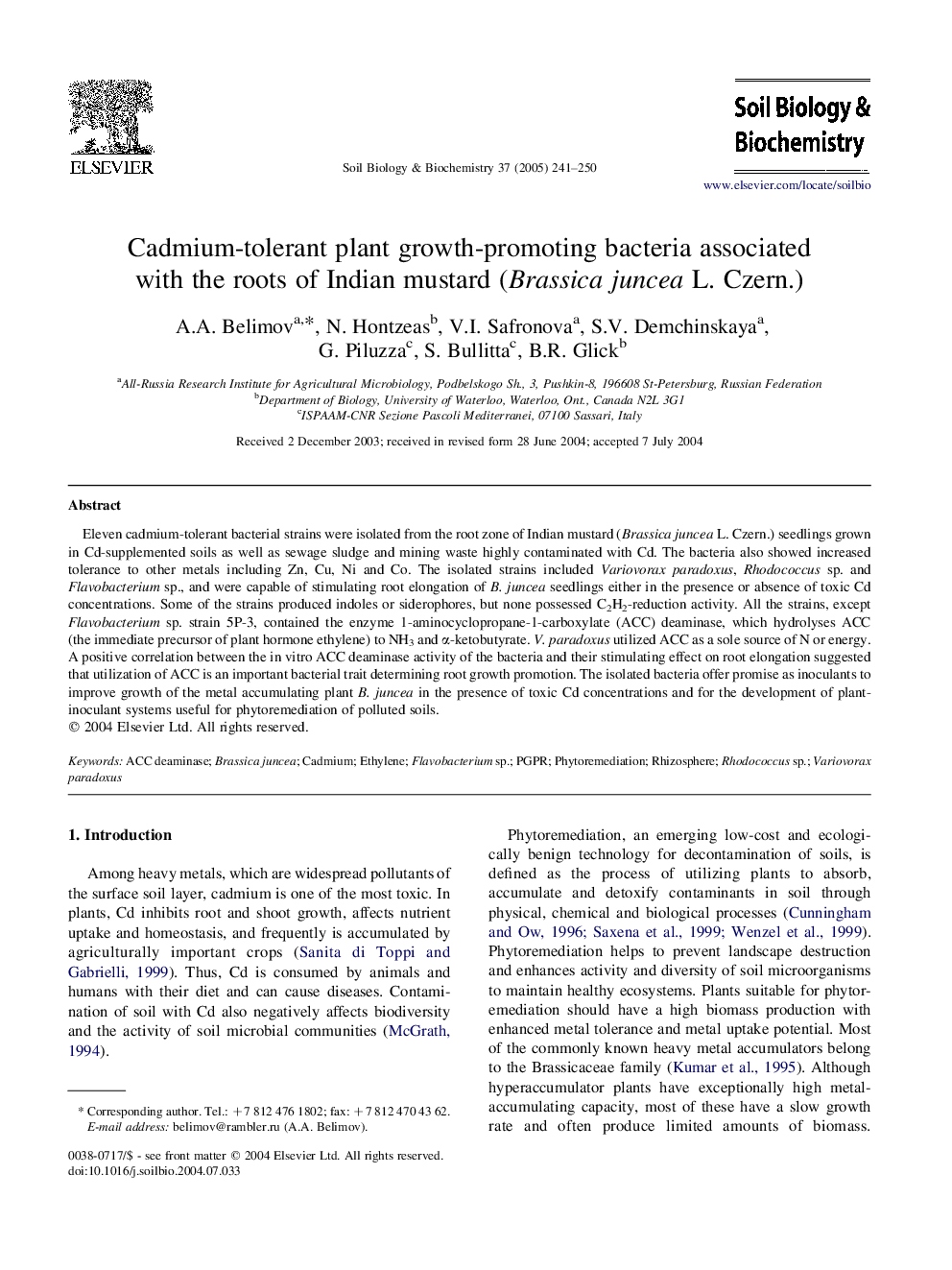| Article ID | Journal | Published Year | Pages | File Type |
|---|---|---|---|---|
| 10846331 | Soil Biology and Biochemistry | 2005 | 10 Pages |
Abstract
Eleven cadmium-tolerant bacterial strains were isolated from the root zone of Indian mustard (Brassica juncea L. Czern.) seedlings grown in Cd-supplemented soils as well as sewage sludge and mining waste highly contaminated with Cd. The bacteria also showed increased tolerance to other metals including Zn, Cu, Ni and Co. The isolated strains included Variovorax paradoxus, Rhodococcus sp. and Flavobacterium sp., and were capable of stimulating root elongation of B. juncea seedlings either in the presence or absence of toxic Cd concentrations. Some of the strains produced indoles or siderophores, but none possessed C2H2-reduction activity. All the strains, except Flavobacterium sp. strain 5P-3, contained the enzyme 1-aminocyclopropane-1-carboxylate (ACC) deaminase, which hydrolyses ACC (the immediate precursor of plant hormone ethylene) to NH3 and α-ketobutyrate. V. paradoxus utilized ACC as a sole source of N or energy. A positive correlation between the in vitro ACC deaminase activity of the bacteria and their stimulating effect on root elongation suggested that utilization of ACC is an important bacterial trait determining root growth promotion. The isolated bacteria offer promise as inoculants to improve growth of the metal accumulating plant B. juncea in the presence of toxic Cd concentrations and for the development of plant-inoculant systems useful for phytoremediation of polluted soils.
Keywords
Related Topics
Life Sciences
Agricultural and Biological Sciences
Soil Science
Authors
A.A. Belimov, N. Hontzeas, V.I. Safronova, S.V. Demchinskaya, G. Piluzza, S. Bullitta, B.R. Glick,
